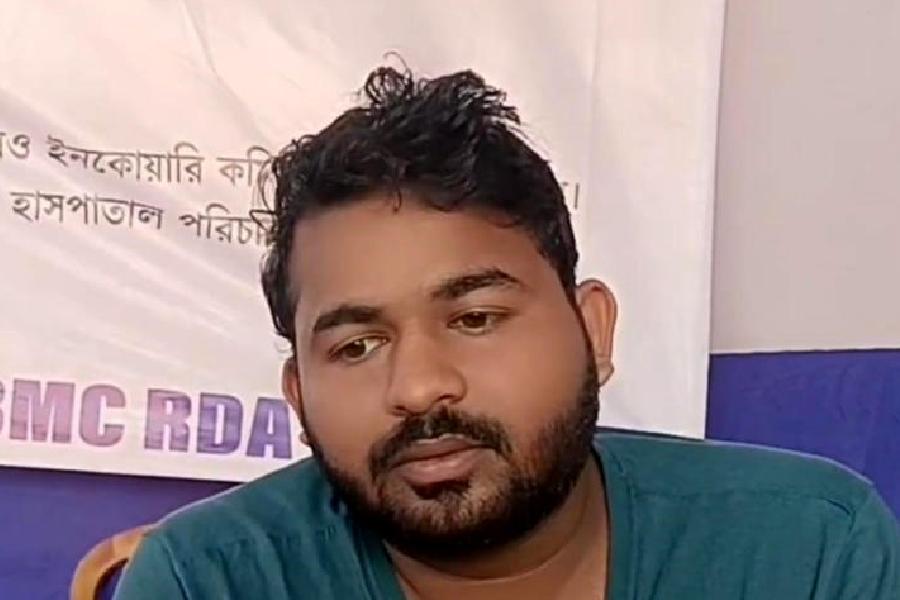Sandip Mondal, a second-year postgraduate trainee in ENT at the North Bengal Medical College & Hospital (NBMCH) here, continued with his hunger strike for the third day on Wednesday, while two other junior doctors who started the fast-unto-death on October 7 continued to be under treatment.
"It is over 65 hours now that Sandip is on hunger strike. He is weak but stable. We are constantly monitoring his health,” said Koustav Chakrabortty, president of the Resident Doctors' Association (RDA), NBMCH branch.
Like the junior doctors in Calcutta who launched their indefinite hunger strike at Esplanade over their 10-point demand in the wake of the RG Kar crime, Alok Verma and Souvik Banerjee in north Bengal followed suit. Alok, a first-year postgraduate trainee in psychiatry, and Souvik, an intern at the North Bengal Dental College & Hospital, also on the NBMCH campus, fell ill after fasting for some days and were admitted to the intensive care unit of NBMCH.
“Alok has now been shifted to a general ward and will be discharged today (Wednesday) but he is still weak and suffering from fatigue,” Koustav said.
Souvik, who fell ill on Tuesday, is still under observation at the ICU.
The junior doctors in the NBMCH said that they were resolute in their demands.
“We want to make it clear that the hunger strike will continue until the authorities take concrete steps to address our grievances. We seek the improvement in the hospital’s infrastructure, better staffing to reduce the overwhelming workload, a review of our duty hours and proper security,” said a junior doctor at the NBMCH.
As Sandip continued with his hunger strike, two senior doctors from the orthopaedics department of the NBMCH joined him in a 12-hour symbolic hunger strike on Wednesday to express their solidarity with the protesting junior doctors.
Partha Sarathi Sarkar, the head of the department of orthopaedics, and Utpal Bandopadhyay, an assistant professor of the department, participated in the 12-hour hunger strike under the banner of FeMA (Federation of Medical Associations).
“We cannot compromise on the quality of healthcare or the well-being of the doctors who are providing that care. A comprehensive change is required in the government healthcare system and hence the junior doctors are protesting. We support them fully,” said Sarkar.










